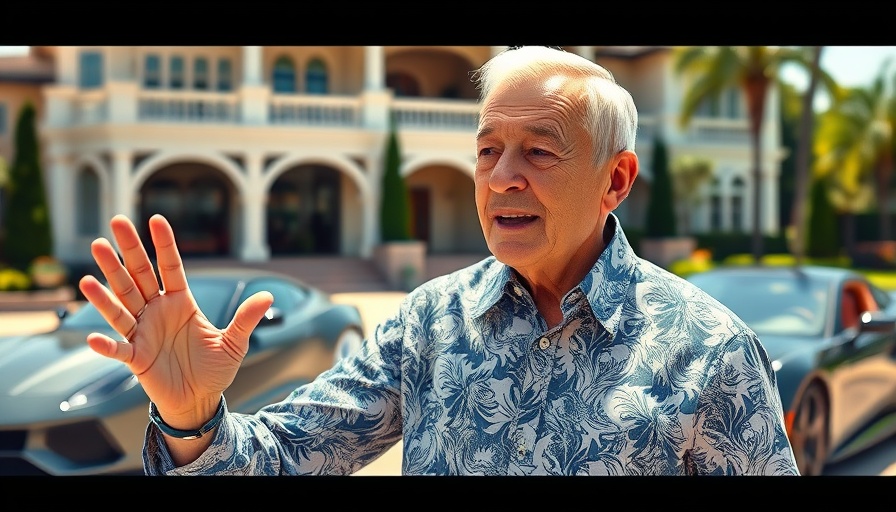Lessons from an Unlikely Source
What if the secret to transforming your spa into a beloved sanctuary wasn’t about your menu of services—but your purpose behind them?
Before Starbucks became a household name in 80+ countries, it was just a tiny coffee shop in Seattle that didn’t even serve drinks—only roasted beans.
And before Howard Schultz became one of the most respected business visionaries in the world, he was just a kid from Brooklyn public housing, watching his father lose job after job with no benefits, no dignity, and no support. That memory stayed with him.
“I didn’t open coffee shops,” Schultz once said. “I built a company that gives hope.”
As spa owners and managers, you already understand what it means to care for people beyond the transaction. You see guests walk in carrying more than tension in their shoulders—you see the weight of the world.
This story isn’t about coffee. It’s about building something people feel. It’s about creating emotional connection, cultivating team culture, and having the courage to lead with heart, even when the numbers say "no."
Howard Schultz turned a simple cup of coffee into a ritual, a refuge, and a movement. And in doing so, he left behind a blueprint that spa leaders like you can adapt—not just to grow a business, but to lead a team, touch lives, and create something extraordinary.
Let’s explore how.
From Public Housing to a People-Centered Vision
Howard Schultz grew up in the Canarsie public housing projects of Brooklyn. His father, a delivery driver, broke his ankle on the job and was fired without compensation or insurance. That childhood memory shaped Schultz's mission to create a workplace where people felt respected and protected.
For spa owners, this early experience resonates. The wellness industry is rooted in care—and that begins with how you treat your team. Schultz believed businesses should offer more than jobs; they should offer dignity.
He extended healthcare benefits and stock options to even part-time employees at Starbucks, because, as he said, “Success is best when it’s shared.”
Spa takeaway: Invest in your team. Whether it’s through benefits, bonuses, or simply consistent recognition, when your staff feels supported, your guests feel it too.
One Trip to Italy That Changed Everything
In 1983, Schultz visited Milan and was struck by the café culture. Italian espresso bars weren’t just places to grab a drink—they were vibrant social centers. People gathered, connected, relaxed. Schultz returned with a vision: to make Starbucks a "third place" between home and work.
Initially, the Starbucks founders disagreed with his idea. They saw themselves as a retail bean business. But Schultz knew that the product was only half the story. The feeling around it—the ambiance, the relationship with the barista, the smell, the music—mattered just as much.
Spa takeaway: Your spa isn’t just a location. It’s a sanctuary. Think beyond the service and into the full sensory experience. What music plays in the lobby? What scent greets your clients? Is every staff member part of that emotional environment?
Betting Everything on the Vision
After being rejected, Schultz left Starbucks and launched his own café, Il Giornale. He was turned down by 217 investors before finally raising the capital he needed. In 1987, he returned to purchase Starbucks for $3.8 million.
He didn’t just change the product. He transformed the model. Schultz standardized the experience, introduced espresso drinks to American culture, and created a unique coffee language (tall, grande, venti). It was a little theatrical, but that’s what made it memorable.
Spa takeaway: Don’t be afraid to innovate with your own service rituals. What if you created a new way to welcome every client or branded your massage packages with emotion-based names? Differentiation starts with a clear identity.
Leading Through Crisis with Conviction
In 2008, during the Great Recession, Starbucks started to lose its soul. The brand had expanded quickly, but quality was slipping. Schultz stepped back in as CEO, closed hundreds of stores, retrained staff, and brought the company back to its roots.
He wrote in Onward, "We had to dig deep into who we were and remind ourselves why we existed."
Spa takeaway: If your spa has faced recent slowdowns or competition, it may be time for a reset. Revisit your founding values. Re-educate your team. Let quality guide your decisions, not panic.
Culture Is the Real Product
Starbucks employees aren’t just workers—they’re "partners." They’re empowered to connect, recommend, and engage. Schultz believed if you took care of your partners, they’d take care of your customers.
He emphasized empathy, saying, “Not every business decision is an economic one.”
Spa takeaway: Your front desk team and service providers are the face of your brand. Hire for warmth, train for excellence, and recognize often. Culture is contagious—and clients can feel it the moment they walk in.
From One Location to 35,000 — with Soul
Starbucks didn’t grow because of flashy ads. It grew because of consistency, connection, and community. Schultz built something scalable that never lost sight of its heart.
Even as the brand went global, every store felt familiar. Every cup had a message. Every visit felt intentional.
Spa takeaway: Whether you run one spa or plan to open more, brand consistency matters. Develop a signature experience, a welcoming phrase, a design aesthetic that tells your story no matter where it appears.
Final Thought: Build a Business People Feel
Howard Schultz's story isn’t just about coffee. It’s about possibility. He took a commodity and infused it with care, connection, and culture.
Your spa can be that place for someone—a healing space, a ritual of self-care, a break in the chaos. Like Schultz, you have the power to create not just a business, but a movement.
In the end, people won’t remember the price of the service. They’ll remember how they felt when they walked through your door.
So ask yourself: What are you really building?
Conclusion: From Coffee Beans to Business Breakthroughs
Howard Schultz didn’t sell coffee. He sold warmth, connection, and identity. And in doing so, he turned an everyday product into an extraordinary experience that changed the way the world thinks about service.
As a spa owner or manager, you have that same power. You have the ability to create a "third place" where clients feel not just better physically—but uplifted emotionally. Whether you run a single boutique spa or oversee multiple locations, Schultz’s journey offers a timeless reminder:
Build culture before you build revenue.
Be clear on your mission, even when others aren’t.
Create experiences that feel personal, not just professional.
And most of all, never underestimate the value of compassion in business.
Let Howard Schultz's story inspire you to think bigger, lead with empathy, and create something lasting—not just for profit, but for purpose.
 Add Row
Add Row  Add
Add 



 Add Row
Add Row  Add
Add
Write A Comment